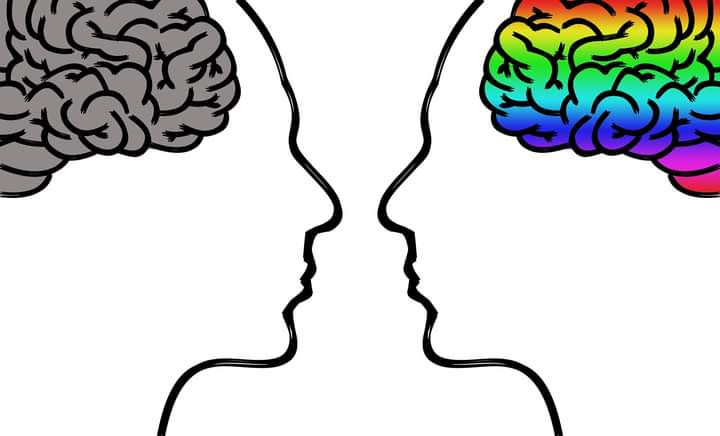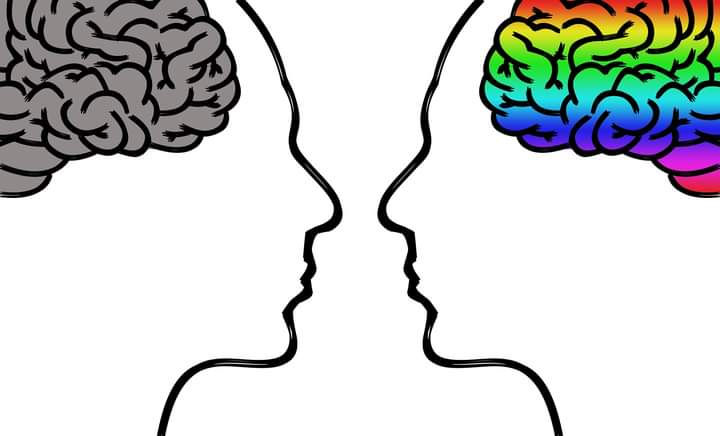Situação financeira x saúde física mental e emocional
- Debora Wiseman
- 28 de jun. de 2022
- 6 min de leitura

Fim do mês chegando... e a preocupação financeira aumenta!
Segundo a Organização Mundial da Saúde (OMS), sentir medo, preocupação e estresse são respostas normais durante uma crise e pandemia.
Toda mudança gera estresse. Estamos vivendo muitas mudanças bruscas que vão desde as novas dinâmicas de trabalho home office até a educação domiciliar dos filhos, além da falta de contato físico com familiares, amigos e colegas e das consequências físicas, emocionais e financeiras de quem já contraiu o vírus..
É importante darmos mais atenção para a nossa saúde física, mental e emocional.
Uma pesquisa feita nas universidades de Southampton e Kingston, no Reino Unido, indica que pessoas endividadas têm três vezes mais propensão a ter problemas de saúde mental.
Um levantamento feito pelo Serviço de Proteção ao Crédito (SPC Brasil), em parceria com a Confederação Nacional de Dirigentes Lojistas (CNDL), aponta que 69% dos inadimplentes sofrem com ansiedade por não conseguir pagar as dívidas.
Em seguida, 65% apresentam forte sentimento de insegurança, 61% angústia e 57% sentimento de culpa.
Segundo relatório do Money and Mental Health Policy Institute, pessoas muito endividadas possuem três vezes mais chances de ter problemas graves de saúde mental. O mesmo estudo identificou que 93% das pessoas com a saúde mental abalada gastam mais do que o normal, 92% acham mais difícil tomar decisões financeiras e 74% adiam o pagamento de contas.
A tendência, de acordo com os pesquisadores, é que essas porcentagens aumentem pela inconstância da situação mundial.
Uma investigação do Clinical Psychology Review identificou que um quarto dos entrevistados com dívidas teve a saúde mental afetada, com problemas como depressão, psicoses, dependência às drogas e maior predisposição ao suicídio.
Todas essas estatísticas acima, são grandes sinais de alerta a todos nós para cuidarmos prioritariamente de nossa saúde física, mental e emocional.
Não adianta se alimentar bem, praticar exercícios, manter o bem-estar mental, se a parte financeira estiver desequilibrada. O contrário também é válido.
Com isso, a situação vira uma bola de neve num círculo vicioso sem fim. Uma vez estando a saúde financeira desestruturada, a saúde física e mental fica ainda pior.
Sintomas
* Estresse;
* Medo e insegurança;
* Preocupação;
* Nervosismo;
* Ansiedade;
* Culpa;
* Angústia e depressão;
* Insônia;
* Dores pelo corpo;
* Perda do apetite e distúrbios gastro intestinais;
* Isolamento;
* Procrastinação e falta de produtividade;
* Vícios, entre outros acima citados.
É preciso mudar! E, a boa notícia é que é possível reverter essa situação.
Dicas valiosas de como superar esse círculo vicioso
Um ponto importante é reconhecer que está com problemas. Muitas vezes, os indivíduos sentem vergonha e culpa pela situação.
Primeiramente, sabemos e devemos considerar que acima de tudo o mais importante é nossa saúde física, mental e emocional, pois sem ela, não podemos cumprir nossas funções devidamente.
* Admitir que está enfrentando problemas e admitir que precisa mudar alguns hábitos no dia a dia
* Exercitar a paciência e o auto controle em tudo;
* Procurar um estilo de vida saudável e equilibrado, física e emocionalmente, como: dieta compatível, exercícios físicos e relaxamento, procura de entretenimento gratuito como ouvir música ou assistir um filme.
* Buscar ajuda para a origem do problema, sem culpa ou preconceito. Afinal, você quer resolver a dor da melhor maneira possível, sem criar outras dificuldades.
* Busque aprender mais sobre educação financeira. Ela vai te proporcionar o conhecimento e a confiança necessários para tomar decisões mais equilibradas.
* Converse com alguém de confiança, pois podem surgir novas ideias, soluções e ajuda.
* Busque apoio em terapias e profissionais certos e competentes para você viver melhor e com satisfação. Sem dores, sem cobranças. Você merece viver com saúde integral e com as contas em dia!
No começo, pode ser difícil se adaptar aos novos hábitos. Mas, com a saúde física, mental e emocional equilibrada e em dia, soluções eficazes para os problemas começam a surgir.
Acredite, a falta de dinheiro é reversível, mas, os problemas de saúde que isso gera, se não tratados com urgência, podem vir a se tornar problemas mais graves e crônicos.
IMPORTANTE: Somos Terapeutas Holísticos e o nosso tratamento é alternativo. Mesmo apresentando resultados satisfatórios é fundamental frisar que somente médicos devidamente habilitados, podem diagnosticar doenças, indicar tratamentos e receitar remédios. Desejamos a todos, um abraço apertado no coração e tudo de bom. Até a próxima semana Shalom! Debora e Daniel Wiseman
_______________________
Financial situation affects your physical mental and emotional health
End of the month coming... and financial concern increases! According to the World Health Organization (WHO), feeling fear, worry and stress are normal responses during a crisis and pandemic. Every change creates stress. We are experiencing many sudden changes, ranging from the new dynamics of home office work to the home education of children, in addition to the lack of physical contact with family, friends and colleagues and the physical, emotional and financial consequences of those who have already contracted the virus.. It is vital to pay more attention to our physical, mental and emotional health. Research carried out at the universities of Southampton and Kingston, in the United Kingdom, indicates that people in debt are three times more likely to have mental health problems. A survey carried out by the Credit Protection Service (SPC Brasil), in partnership with the National Confederation of Shopkeepers (CNDL), points out that 69% of defaulters suffer from anxiety about not being able to pay their debts. 65% have a strong feeling of insecurity, 61% anguish and 57% a feeling of guilt. According to a report by the Money and Mental Health Policy Institute, people who are heavily in debt are three times more likely to have serious mental health problems. The same study found that 93% of people with poor mental health spend more than usual, 92% find it more difficult to make financial decisions, and 74% put off paying their bills. The trend, according to the researchers, is for these percentages to increase due to the inconstancy of the world situation. An investigation by the Clinical Psychology Review identified that a quarter of respondents with debt had their mental health affected, leading to problems such as depression, psychosis, drug addiction and a greater predisposition to suicide. These statistics are warning signs for all of us to prioritise our physical, mental and emotional health.
It's no use eating well, exercising, maintaining mental well-being, if our financial situation is unbalanced. The opposite is also true. It becomes a vicious circle. Once financial health is unstructured, physical and mental health gets even worse. Symptoms * Stress; * Fear and insecurity; * Worry; * Nervousness; * Anxiety; * Fault; * Anguish and depression; * Insomnia; * Aches and pains; * Loss of appetite and gastrointestinal disorders; * Isolation; * Procrastination and lack of productivity; * Addictions, among others mentioned above. It needs to change! And the good news is that it is possible to reverse this situation. Valuable tips on how to overcome this vicious circle An important point is to recognize that you are in trouble. Often, individuals feel shame and guilt about the situation. First of all, we know and must consider that above all, what is most important is our physical, mental and emotional health, because without it, we cannot fulfill our functions properly. * Admit that you are facing problems and admit that you need to change some habits on a daily basis * Exercise patience and self-control in everything; * Look for a healthy and balanced lifestyle, physically and emotionally, such as: compatible diet, physical exercise and relaxation, look for free entertainment like listening to music or watching a movie. * Seek help for the source of the problem, without guilt or prejudice. After all, you want to resolve the pain in the best possible way, without creating further difficulties. * Seek to learn more about financial education. It will give you the knowledge and confidence you need to make more balanced decisions. * Talk to someone you trust, as new ideas, solutions and help may come up. * Seek support in competent therapies and professionals for you to live better and with satisfaction.. You deserve to live with full health and with the bills up to date!
At first, it can be difficult to adapt to new habits. But, with your physical, mental and emotional health balanced and up to date, effective solutions to problems will begin to emerge.
Lack of money is reversible, but the health problems that it can generate, if not treated urgently, can lead to more serious and chronic problems.
IMPORTANT: We are Holistic Therapists and our treatment is
alternative. Even with satisfactory results, it is essential to emphasize
that only duly qualified doctors can diagnose diseases,
indicate treatments and prescribe medication.
We wish you everything you wish for yourselves
See you next week
Shalom!
Deborah and Daniel Wiseman





Comentários